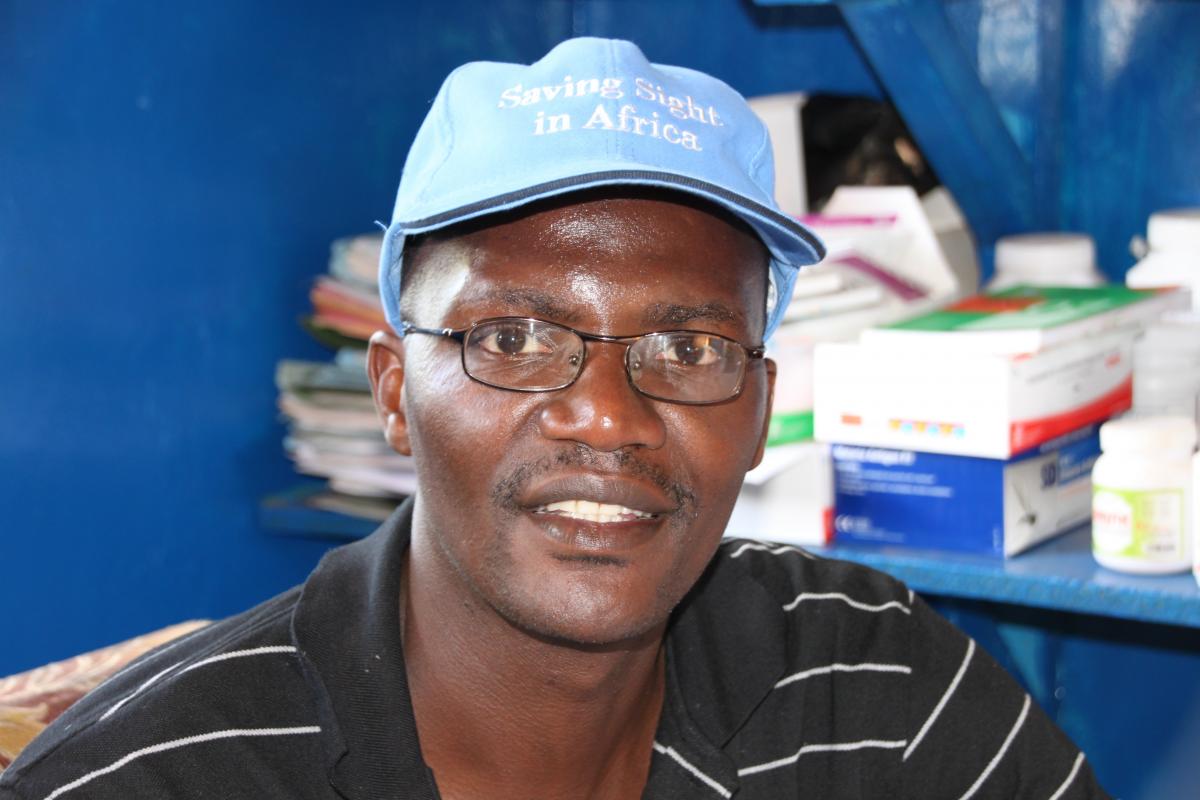Join a powerful, unprecedented alliance for better eye health for all.
Join IAPB-
Choose an alternate language here
For Africa Day, Helen White, Director of Communications and Fundraising, Orbis Africa writes about Ophthalmic Nurse Duncan Chimbila and how he is contributing to their efforts in Zambia, and the larger work that needs to be done in Africa to reduce the burden of avoidable blindness.

25 May 2017, Africa Day, marks the celebration of a unified and liberated continent. With many African countries gaining their independence between 1958 and 1963, Africa Day stands as a proud declaration of liberation and a celebration of freedom from oppression. This same passion and solidarity, for all that is African, is essential if we are to bring sight to a continent with the highest prevalence of blindness.
With an estimated 4.8 million blind and 16.6 million people living with severe to moderate visual impairment, Africa requires that every man and woman works together towards a common goal of seeing a continent where no one is needlessly blind. Doctors, nurses, policy makers, diplomats, traditional healers, community healthcare workers, funders and countless others – all fuelled by the injustice of somebody losing their sight, not because they suffer from an incurable condition, but because they live in a poorly resourced community.
One man who has taken up the fight against preventable and avoidable blindness in Zambia is Ophthalmic Nurse Duncan Chimbila. Driving hundreds of kilometres daily to reach the most isolated and impoverished communities in the North-Western Province of Zambia, Duncan tirelessly seeks out those who could have their vision restored. In the short film “Clouds in my Eyes”, we meet Duncan and see the impact his work has on a group of elderly Zambians from the North-Western province as they journey from a life of visual impairment due to treatable cataract, to one of clear vision.
Duncan, one of only a few Ophthalmic Clinical Officers (OCOs) in Zambia, explains how he found himself working in eye health: “I first worked as a district data officer when I decided to undergo training to be a nursing officer, as I wanted to work closer with people and make a difference. I was awarded a scholarship by a local mining group to study in Ghana as an OCO. Finally I could pursue a career where I could live out my passion to mobilise people to greater health and work specifically within eye health.”
When Orbis Africa started working in the Mwinilunga district in the North-Western Province in Zambia in 2012, Duncan was asked to return as there were no OCOs. Today, Duncan screens more than 50 cases in a single outreach and Orbis Africa funds and assists with the follow-up visits, sometimes even to people’s homes, to monitor progress, offer support and administer treatment.
While the efforts of individuals like Duncan Chimbila are making a tangible difference in the lives of people who would otherwise continue to suffer needlessly, the fight against blindness in Africa is far from over. We need to continue to train eye care professionals and ensure that they have adequate infrastructure and resources to provide sustainable, quality eye care. Lasting success requires a three-pronged approach; by establishing relationships with policy makers, by raising awareness through research-based advocacy, and by providing training and infrastructure to strengthen local eye care institutions. Together, we will be able to eliminate preventable blindness and vision impairment across Africa.
Through the decisions made by policy makers and funders, the sight saving surgeries performed in operating theatres and through the passion and commitment of organisations like Orbis Africa and their partners, Africa will indeed stand unified as a continent that empowers its people to realise their full potential.
Liked it? Today is Africa Day and we have loads of posts for you. Here are some: